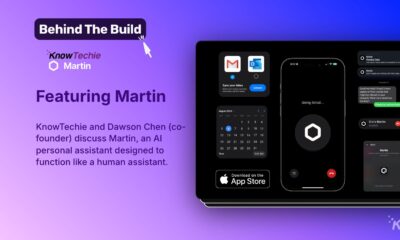News
To protect user privacy, Apple just pissed off the police
In the ongoing fight between technology, privacy, and rights, Apple is taking a stand.

Just a heads up, if you buy something through our links, we may get a small share of the sale. It’s one of the ways we keep the lights on here. Click here for more.
One of the tools law enforcement officials use to break into iPhones is going to be significantly curtailed thanks to Apple. In beta versions of both iOS 11.4.1 and iOS 12, Apple has turned off the device’s USB port one hour after the phone was last locked, according to The New York Times.
Basically, it would make doing anything other than charging your device require your passcode to transfer any data to or from the device, after that one hour.
Because of the change, companies using devices like GrayKey will no longer be able to hack into iPhones via the Lightning port. Multiple agencies use this tool, including the Drug Enforcement Administration.
Apple says it isn’t trying to make law enforcement more difficult, explaining,
We’re constantly strengthening the security protections in every Apple product to help customers defend against hackers, identity thieves and intrusions into their personal data.
We have the greatest respect for law enforcement, and we don’t design our security improvements to frustrate their efforts to do their jobs.
Chuck Cohen, a police officer in Indiana, takes another view. He told The New York Times,
If we go back to the situation where we again don’t have access, now we know directly all the evidence we’ve lost and all the kids we can’t put into a position of safety.
Security blogger Grahman Cluley doesn’t agree, viewing the update as a positive,
Apple’s security engineers have worked tirelessly for years strengthening the iOS operating system from hackers. It would be wrong to reduce hundreds of millions of iPhone users’ security and privacy just to help law enforcement agencies, authoritarian regimes, and state-sponsored hackers crack into a few mobile phones.
It should be of no surprise to anyone that Apple’s closing this loophole to help with user privacy. This is the same company that refused an FBI request to unlock the iPhone 5c owned by a someone who killed 14 people in San Bernardino, California in 2015. Around the same time, Apple CEO Tim Cook explained why his company would refuse to provide a security “backdoor” for law enforcement or anyone else.
Apple’s likely to release iOS 11.4.1 in the coming days; iOS 12 should launch in September.
Is Apple right to close the USB loophole in an effort to protect user privacy? Let us know your thoughts below.
In other Apple news:
- Apple doesn’t want you using iOS devices to mine cryptocurrencies
- Voice in a Can will let you run a stripped down version of Alexa directly on your Apple Watch
- We’re most likely only weeks away from the iOS 12 public beta
































